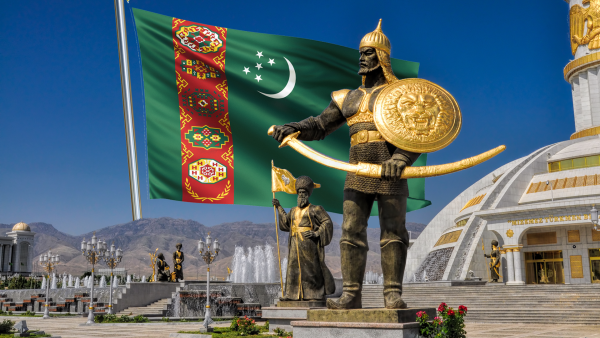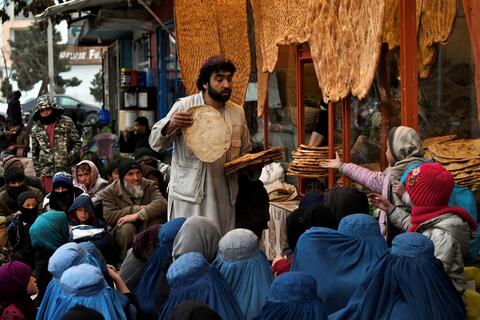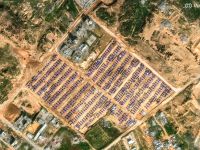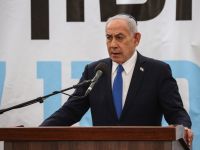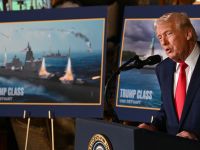The inauguration of the new President of Turkmenistan, Serdar Berdymukhamedov, took place recently at the Palace of Spirituality in Ashgabat. Serdar Berdymukhamedov, son of Gurbanguly Berdymukhamedov, Turkmenistan's longtime leader, began his work as president. According to the law, after being sworn in as part of the inauguration, the president-elect officially takes office.
In fact, in the March 12 presidential election, Serdar Berdymukhamedov won 73 percent of the vote. After an unusual delay in the vote counting, a political dynasty and the transfer of power from father to son emerged in one of the most controlled countries in the world.
Moreover, the process of changing the leadership in the country began when Gurbanguly Berdymukhamedov, 64, announced the elections. Berdymukhamedov stressed holding the early elections on March 12 (to pave the way for ‘young leaders’) The Central Election Commission of Turkmenistan then announced its readiness to hold early presidential elections. Three days later, Serdar Berdymukhamedov, the president's son, announced his intention to run for elections.
Eight other candidates ran, but in the eyes of many dissidents, there was no real, and widespread debate between the time of announcing the early elections and the day of holding the elections. Under these circumstances, Serdar's victory did not face a major challenge. Therefore, officials announced on March 15 that Serdar Berdymukhamedov, the leader's 40-year-old son, had won the elections.
Turkmenistan's ruling party has nominated Serdar, the son of President Berdymukhamedov, to run in the March 12 presidential election. The transfer of leadership from father to son, which was the first of its kind in Central Asia, took place with the approval of Serdar by the ruling Democratic Party.
Although, the state media consider this day as a special turning point in its independent and neutral history and indicative of the irreversibility of democratic developments in the country, some dissidents, critics, and the opposition, mostly abroad, have made accusations and criticisms about the short time between the announcement of the election and election day, the blocking of candidates, the severely limited media space, the lack of independent political activity inside the country.
In the eyes of critics, no election in Turkmenistan since 1991 has been considered truly competitive. But the government and many are also concerned about the approval of elections by CIS observers.
What is clear is that after the Republic of Azerbaijan, Turkmenistan is the second country to understand the transfer of power from father to son in the Central Asian region and the Caucasus. At the same time, there are significant challenges facing the new president.
In recent years, falling global hydrocarbon prices, weakening social welfare systems, food insecurity, food shortages, rising unemployment, have disrupted the country's economic situation. Even critics say a significant portion of the population has emigrated. In this situation, the new government, with measures such as the approval of the ‘National Program of Social and Economic Development of Turkmenistan in 2022-2052’ wants to take an important step in the country's economic challenges and modernization of social and economic base.
In fact, the new president's emphasis on continuing the path of development during the 30 years of independence and adopting programs aimed at ensuring a high level of social conditions for the people, moving of Turkmenistan to the free market laws, and the government’s program to support the national private sector can reduce some challenges.
However, it is not clear how the outlook of the country's tourism sector and the promotion of potential in the field of foreign tourism will be implemented due to the strictures of entry and exit of foreigners; Or how successful the government can be in attracting foreign investors.
In the political dimension, however, there is no strong political opposition group in the country. But, there is a level of dissatisfaction among other groups of tribal/regional leaders within the country.
There have been various rumors about the former president's illness in recent years. At the same time, there is a need for greater coordination in the face of future special security and political dangers, while the poor security situation in Afghanistan could also have a negative impact on Turkmenistan. In fact, however, the authorities have already gained more power by purchasing weapons and special equipment and training security forces. But the continued role of the father as speaker of the Senate could help strengthen the loyalty of the Turkmen tribal elites and stabilize the transition process.
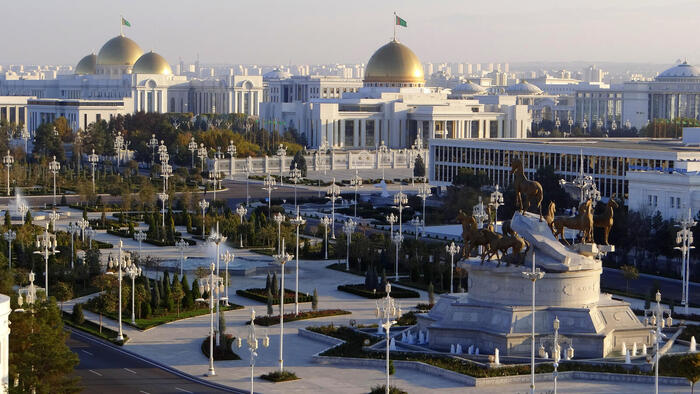
Foreign policy; stability or change
The position of the President of Turkmenistan in the Constitution and its various articles is very fundamental and important. Earlier, Serdar Berdymukhamedov stressed the continuation of the country's neutrality in foreign policy. In this sense, it allows Turkmenistan to develop full relations with all countries, both in the region and beyond.
After the announcement of the results of the election, the presidents of Russia, China, Iran, Turkey, and the leaders of Kyrgyzstan, Kazakhstan, Tajikistan, and Uzbekistan congratulated the new president of Turkmenistan. In the past year, Turkey-Turkmenistan relations have improved with consultations and meetings between their leaders and officials. In recent years, bilateral relations between Turkmenistan and Russia also have improved. Certainly, Europe and the United States are not satisfied with the current government in Turkmenistan.
In the meantime, however, there have been disputes such as US aid to Turkmenistan. There is still no positive view of the Turkmen elections. However, the new president hopes to diversify foreign economic relations by ensuring the country's security and stability, taking into account strong gas and economic diplomacy and a neutral approach.
In fact, while Turkmenistan has vast mineral resources. It alone accounts for 4% of the world's reserves.
However, as the state of global gas networks has changed in the wake of the war in Ukraine, imposing sanctions on Moscow (due to its invasion of Ukraine) affect the purchase of Turkmen gas by Russia's Gazprom. The government is likely to pay more attention to the Trans-Caspian and TAPI pipelines and to export more gas to China and Iran.
Vision
From Ashgabat's point of view, international observers have confirmed the legitimacy of the election.
However though diaspora representatives and opposition leaders in exile continue to exert pressure, The current rise in global hydrocarbon prices in the current situation could further strengthen the social welfare system, reduce food insecurity, widespread unemployment, and benefit the government.
Also, with the positive approach of China, Russia, and many other actors to Turkmenistan, it is not possible to predict a significant challenge in the country's foreign policy. However, rising gas prices and rising tensions among major global players may make it harder for Turkmenistan to engage in economic diplomacy and select major political and economic partners.
Meanwhile, any sweeping change in Turkmenistan's permanent neutrality policy could provoke reactions from other actors. Therefore, it should be noted that given the nature of the words and approaches of Serdar Berdymukhamedov over the past two years, it seems that the country will pursue the continuation of past strategies in domestic and foreign policy by making some tactical changes.


